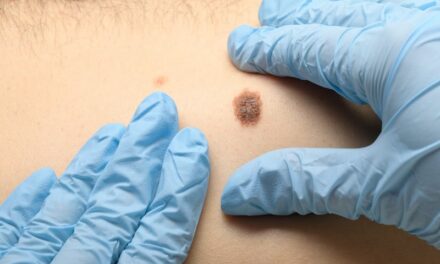German laboratory brings tumor-informed MRD testing to European market through licensing agreement with Quest Diagnostics subsidiary.
MVZ HPH Institute for Pathology and Hematopathology GmbH has launched HPH MRD, a new tumor-informed circulating-tumor DNA (ctDNA) blood test for detecting minimal residual disease (MRD) in patients with solid tumor cancers.
The test is available through HPH’s Hamburg, Germany laboratories via a licensing agreement with Haystack Oncology, a Quest Diagnostics subsidiary. The HPH MRD test uses Haystack MRD technology, which was developed to detect ultralow levels of ctDNA with high sensitivity and specificity for identifying residual or recurrent disease.
Local testing availability aims to improve clinical implementation and provide faster result delivery for European clinicians. All testing and data remain within HPH’s German facilities to support compliance with data protection and regulatory standards.
The HPH MRD test uses whole-genome sequencing to analyze patient tumor tissue and design individualized patient panels, potentially providing greater insight into ctDNA levels compared to conventional methods.
“At HPH, our mission is to provide patients and clinicians with the highest quality diagnostic tools to guide personalized cancer care,” says Markus Tiemann, CEO, MVZ HPH Institute for Pathology and Hematopathology GmbH, in a release. “By licensing Haystack’s MRD technology to develop our own test in our local Hamburg laboratory, we can now offer our patients access to testing that was previously only available abroad, with potentially faster results.”
Addressing European Access Gap
The licensing agreement addresses a gap in European access to advanced MRD testing technologies. Previously, European samples often required international shipping for analysis.
“Patients and physicians in Europe have lacked convenient access to the most sensitive MRD technologies, with samples often needing to be shipped internationally,” says Dan Edelstein, vice president and general manager and a co-founder of Haystack Oncology, in a release. “Our licensing agreement with HPH is an important step toward making next-generation MRD testing part of routine care beyond the US.”
ctDNA MRD testing detects molecular evidence of disease that may remain undetectable with standard imaging methods. The technology identifies tumor-derived DNA fragments in the bloodstream, potentially enabling earlier and more accurate detection of residual or recurrent disease after treatment.
Cancer treatment typically involves surgery followed by chemotherapy or other therapies, but small amounts of cancer can sometimes persist and lead to disease recurrence. MRD testing may help clinicians make more timely, evidence-based treatment decisions.
MVZ HPH Institute for Pathology and Hematopathology was founded in 2004 and specializes in diagnosing solid tumors and hematopathological diseases. The laboratory uses methods including conventional histology, immunohistochemistry, immunophenotyping, and next-generation sequencing.
Haystack Oncology developed from over 20 years of collaboration in liquid biopsy technologies by researchers at Johns Hopkins School of Medicine. The Haystack MRD test is available as a lab-developed test through Quest Diagnostics in the US and for clinical trials in laboratories in Baltimore, Maryland; Hamburg, Germany; and Helsinki, Finland.
ID 37079485 © Shawn Hempel | Dreamstime.com





